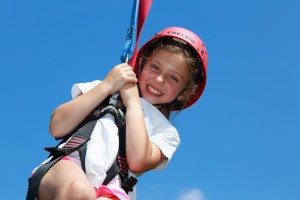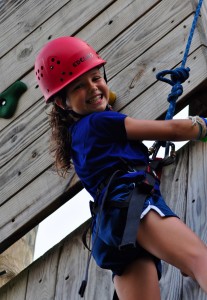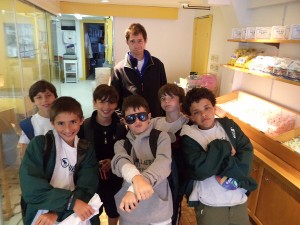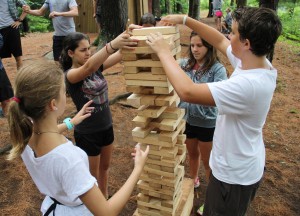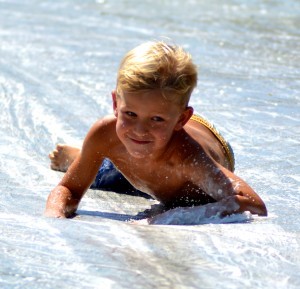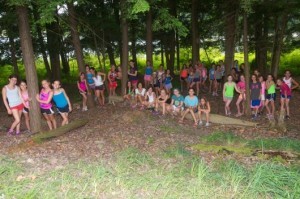 만약 이번 년도에 이 일이 당신에게 일어났다면 손 들어보세요—왜냐하면 이것은 매 년 지금 일어나고 있기 때문입니다. 단순히 당신이 마침내—마침내—캠프 이야기를 마지막으로 들었다고 생각했을 때, 때가 온겁니다. 아마 그것은 캠프 비디오, 캠프 뉴스소식지…심지어 캠프 동창회의 초대장이었을 겁니다. 그것이 무엇이었던간에, 그것은 캠프에 관한 겁니다. 이것은 당신에게 우리가 또 다른 여름의 절반에 다가왔고, 이제 당신이 수상스키 또는 야구 이야기를, 오, 거의 27번째로 듣고 있음을 다시 한번 말해줍니다. 그리고 어떻게 몇 주의 각각의 여름이 당신의 아이들에게 얼마나 엄청난 영향을 미치면 아이들이 한 겨울에 마치 몇 주 전의 일처럼 캠프 이야기를 아직도 할 수 있는 만약 당신에게 당신 스스로 한번이라도 질문해 본적이 있다면 손들어보세요. 당신은 당신의 여름 캠프에 대한 투자가 옳은 것이었음에 대해 매우 기쁩니다. 그러나 당신은 아직도 궁금합니다. 글쎄요, 여기에 몇 가지 고려해볼 것들이 있습니다.
만약 이번 년도에 이 일이 당신에게 일어났다면 손 들어보세요—왜냐하면 이것은 매 년 지금 일어나고 있기 때문입니다. 단순히 당신이 마침내—마침내—캠프 이야기를 마지막으로 들었다고 생각했을 때, 때가 온겁니다. 아마 그것은 캠프 비디오, 캠프 뉴스소식지…심지어 캠프 동창회의 초대장이었을 겁니다. 그것이 무엇이었던간에, 그것은 캠프에 관한 겁니다. 이것은 당신에게 우리가 또 다른 여름의 절반에 다가왔고, 이제 당신이 수상스키 또는 야구 이야기를, 오, 거의 27번째로 듣고 있음을 다시 한번 말해줍니다. 그리고 어떻게 몇 주의 각각의 여름이 당신의 아이들에게 얼마나 엄청난 영향을 미치면 아이들이 한 겨울에 마치 몇 주 전의 일처럼 캠프 이야기를 아직도 할 수 있는 만약 당신에게 당신 스스로 한번이라도 질문해 본적이 있다면 손들어보세요. 당신은 당신의 여름 캠프에 대한 투자가 옳은 것이었음에 대해 매우 기쁩니다. 그러나 당신은 아직도 궁금합니다. 글쎄요, 여기에 몇 가지 고려해볼 것들이 있습니다.
1.) 여름 캠프에서, 캠퍼들은 그들의 친구들과 하루 종일, 매일을 보내게 됩니다. 당신이 아이들에게 학교에서도 매일 그렇게 할 수 있다고 말하기 전에 이것을 고려해보세요.
여름 캠프에서, 캠퍼들은 단순히 그들의 친구들과 하루 종일 시간을 보내는 것이 아니라, 그들은 그들과 교류 할 기회를 얻습니다. 당신이 이것에 대해 생각해볼 때, 학교에서 친구들과의 교류는 주로 수업, 휴식시간(더 어린 아이들을 위한), 그리고 점심 시간 사이의 복도 대화로 제한됩니다. 그럼요, 그들은 수업 시간 동안 방과 후 남음의 위험을 무릅쓰고 몇몇의 교류를 할지 모릅니다만, 대부분의 경우, 선생님들이 수업을 하는 동안 (수업일의 대부분을 이루고 있는) 이야기 하는 것은 대개 권장되지 않습니다. 이와 나란히, 여름 캠프는 보다 몇 주 간 지속되며 함께 자며 노는 것이고 캠퍼들은 매일 그들의 친구들과 함께 특별한 무언가를 하게 되는 것입니다.
2.) 아이들은 캠프에서 그들 스스로가 될 수 있습니다. 여름 캠프에 지켜야 할 규칙이 없다는 것이 아닙니다. 그러나 규칙들은 아이들이 편안히 있을 수 있는 것을 촉진시키는 그런 종류의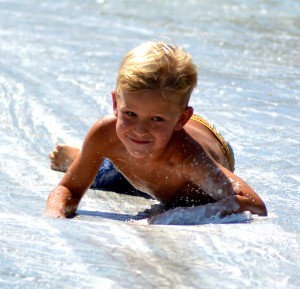 것들이곤 합니다. 규칙들은 상당히 학교에서 부과되는 것에 비해 편안하고, 심지어 그들이 일년의 십 개월동안 준수해야만 하는 사회적 상황에서 적절한 행동으로 적용되는 것들에 비해 다소 느슨합니다. 예를 들어, 대부분의 식당 (또는 그들의 보호자) 은 아마 아이들이 그들의 식사 도중 노래를 하거나 함성을 지르는 것에 대해 그닥 기뻐하지 않을 것입니다. 대부분의 여름 캠프는 이것을 격려합니다.
것들이곤 합니다. 규칙들은 상당히 학교에서 부과되는 것에 비해 편안하고, 심지어 그들이 일년의 십 개월동안 준수해야만 하는 사회적 상황에서 적절한 행동으로 적용되는 것들에 비해 다소 느슨합니다. 예를 들어, 대부분의 식당 (또는 그들의 보호자) 은 아마 아이들이 그들의 식사 도중 노래를 하거나 함성을 지르는 것에 대해 그닥 기뻐하지 않을 것입니다. 대부분의 여름 캠프는 이것을 격려합니다.
3.) 아이들은 여름 캠프에서 독립적으로 변합니다. 당신의 아이들이 당신을 사랑하지 않거나 존경하지 않아서가 아니라, 그들은 그들 스스로 무언가를 하는 것 또한 좋아합니다. 아이들은 그들이 캠프에서 처음으로 시도한 어떤 것 (그들의 친구 캠퍼들, 상담가들, 그리고 다른 캠프의 호스트 스태프들의 도움과 함께, 물론… 하지만 그들의 마음 속에는, 그것은 모두 그들이 한 것이지만, 그것은 괜찮습니다) 을 성취하는 것에 대해 강한 자부심을 느낍니다. 이것은 아이들에게 그들이 모든 것을 하는데 엄마와 아빠가 필요하지 않다는 것을 아는 데 자부심을 느끼게 해줍니다.
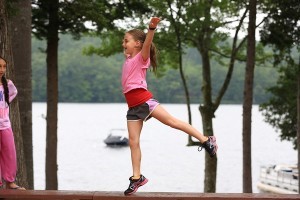 4.) 캠프는 젊음이 넘치는 분위기입니다. 캠프는 젊음에 전념하는 분위기입니다. 심지어 스태프 구성원들도 마음속으로는 젊습니다. 이것은 별 문제가 아닌 것처럼 들리겠지만, 아이의 관점에서 “진짜”세상을 생각해보세요. 그 곳은 기본적으로 아이들이 끊임없이 어른들에 의해 그리고 그들이 어른이 될 때까지 할 수 없는 모든 것들을 상기시키는 공간입니다. 캠프는 반대로 즐거운 아이들만을 위한 공간이자 그들이 왜 자신이 아이인것이 그토록 달콤한지에 대해 끊임없이 깨닫게 되는 곳입니다.
4.) 캠프는 젊음이 넘치는 분위기입니다. 캠프는 젊음에 전념하는 분위기입니다. 심지어 스태프 구성원들도 마음속으로는 젊습니다. 이것은 별 문제가 아닌 것처럼 들리겠지만, 아이의 관점에서 “진짜”세상을 생각해보세요. 그 곳은 기본적으로 아이들이 끊임없이 어른들에 의해 그리고 그들이 어른이 될 때까지 할 수 없는 모든 것들을 상기시키는 공간입니다. 캠프는 반대로 즐거운 아이들만을 위한 공간이자 그들이 왜 자신이 아이인것이 그토록 달콤한지에 대해 끊임없이 깨닫게 되는 곳입니다.
5.) 아이들은 여름 캠프에서 시간을 다르게 봅니다. 정말로요! 그들은 다르게 봅니다. 학기가 시작 될 때, 아이들은 손꼽아 기다리며”떠날때 까지의 달들”을 계산합니다.
이것은 아이들이 끊임없이 스스로를 손꼽아 기다리며 시간을 세는 느린 움직임입니다. 시간은 항상 여전히 있습니다. 여름 캠프가 시작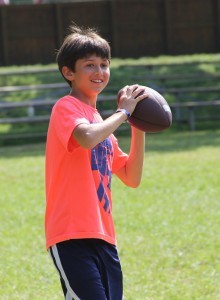 되면, 카운트다운 또한 시작됩니다. 그러나 이 카운트 다운은 “이미 지나간 주 들”로 세어집니다. 아이들은 그들 스스로를 캠프 카운트다운의 끝 앞에 둡니다. 다른 말로 말하자면, 그들은 그들의 여름 캠프에서의 시간이 제한적이란 것을 압니다. 그들이 도착한 시간 부터, 그들은 경험의 강도를 증가시키는 시간을 빠짐없이 세기 시작합니다. 그 이유로 당신의 아이들이 매우 존경해서 여러번 반복해서 하는 이야기들, ‘그것은 캠프 일이야’ 또는 ‘너가 거기 있었어야 했는데’ 라는 이야기들이 겉보기에는 재미없게 보입니다. 그들은 사실 그들이 경험한 순간에서 매우 생생하게 살았고 그 순간들은 그들과 함께합니다. 많지 아이들이 이러한 똑같은 열정을 경험하는 것은 아닙니다. 예를 들면, 그들의 마지막 수학 시험과 같은 것입니다.
되면, 카운트다운 또한 시작됩니다. 그러나 이 카운트 다운은 “이미 지나간 주 들”로 세어집니다. 아이들은 그들 스스로를 캠프 카운트다운의 끝 앞에 둡니다. 다른 말로 말하자면, 그들은 그들의 여름 캠프에서의 시간이 제한적이란 것을 압니다. 그들이 도착한 시간 부터, 그들은 경험의 강도를 증가시키는 시간을 빠짐없이 세기 시작합니다. 그 이유로 당신의 아이들이 매우 존경해서 여러번 반복해서 하는 이야기들, ‘그것은 캠프 일이야’ 또는 ‘너가 거기 있었어야 했는데’ 라는 이야기들이 겉보기에는 재미없게 보입니다. 그들은 사실 그들이 경험한 순간에서 매우 생생하게 살았고 그 순간들은 그들과 함께합니다. 많지 아이들이 이러한 똑같은 열정을 경험하는 것은 아닙니다. 예를 들면, 그들의 마지막 수학 시험과 같은 것입니다.
그래서 다음 캠프를 상기시키는 것이 당신의 우편함 또는 이메일함에 도착하면 그 이야기들은 다시 시작됩니다. 단지 기억하세요. 캠퍼들에게 캠프에 관련된 어떤 것이 도착하든 이것은 마치 이상한 나라에서 온 엽서를 받은 것과 같은 것입니다.


 570-798-9831
570-798-9831



